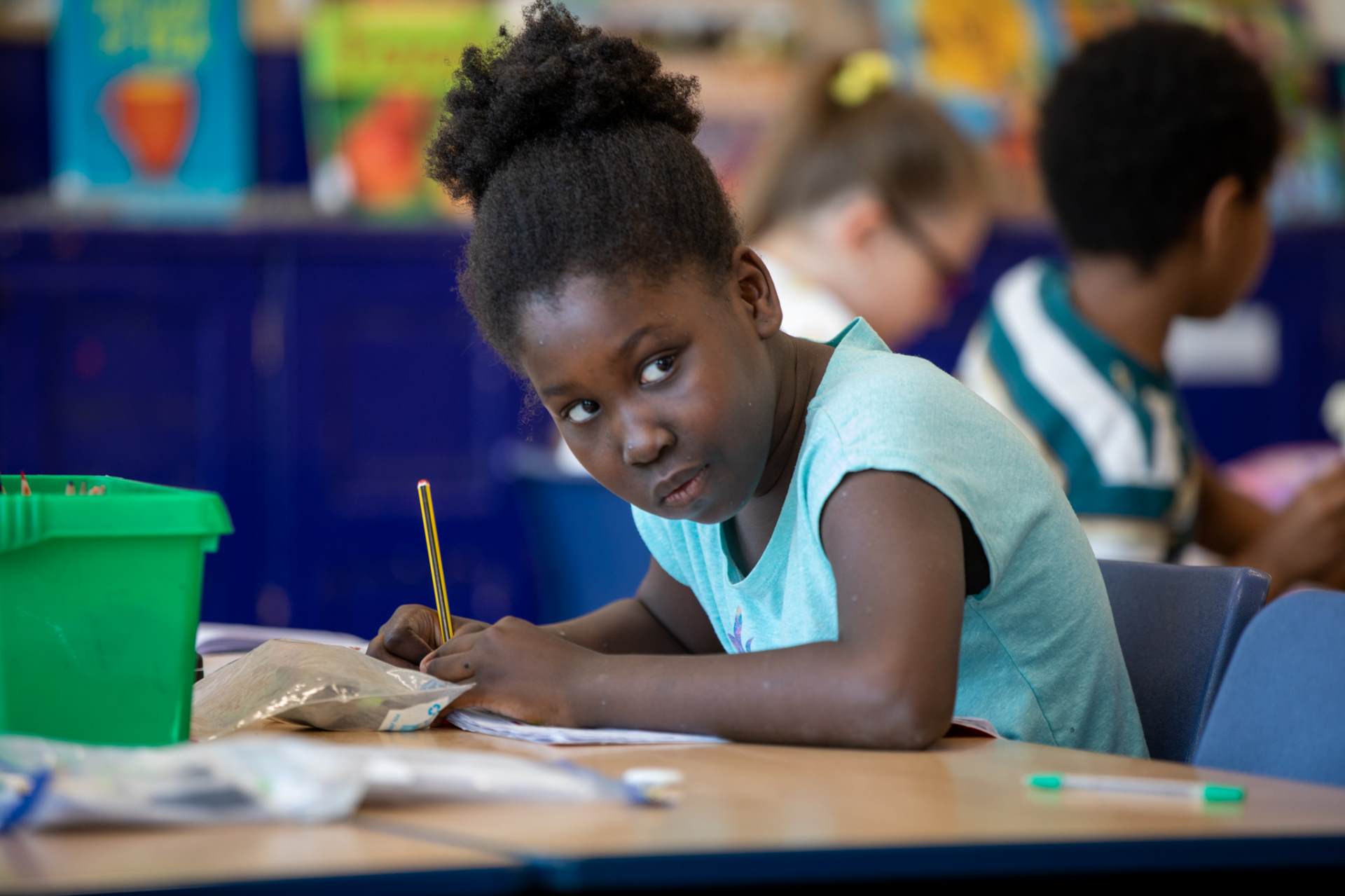English - writing
English is at the heart of our curriculum, as it is through our use of English that we communicate and connect.Spoken language, stories and written texts lie at the centre of our culture, helping us to understand and influence the world around us.
Reading and writing ‘float on a sea of talk’: we place great emphasis on developing confident, articulate speakers who can listen to and understand others. Developing a wide vocabulary is a key element of this. When we plan our teaching we are conscious of the new words, phrases and concepts that children need in order to really understand a new topic, and be able to explain their learning. Our lessons in all subjects are designed to support children’s speaking and listening skills by including opportunities for discussion, debate, explanation and presentation to an audience.
Our planning ensures that we cover all the elements of the National Curriculum for English.
Intent
Writing is about communicating, and children are born communicators. By the time the children leave us in Year 6, we aim for them to be clear, confident writers who can communicate effectively, adapting their tone and style to suit the genre. In every year group, children will engage in a range of both fiction and nonfiction genres, with a focus on writing for purpose. As they progress through the school, we intend for them to work as authors, taking more ownership of their writing through drafting, redrafting, editing and self-assessment. We set high expectations and want children to take pride in the presentation of their work; our handwriting and spelling curriculum are intended to give the students the necessary knowledge and skills to achieve this.
Implementation
We encourage even our youngest children in EYFS to engage in purposeful writing - writing letters, making cards, recipes, lists and notices, and telling stories which are scribed (written down) by adults until the children are ready to take over the task of writing for themselves. We teach correct letter formation and handwriting from the very beginning, moving on to important skills like using ‘finger spaces’, re-reading for sense, as well as editing and correcting. They then apply these skills in their freely-chosen writing, as well as in adult-led writing tasks.
We plan our teaching so that children’s writing has a purpose - for example, to entertain, to inform, to persuade, or to record events - and an audience. contexts for writing may link to the class text, chosen as a great example of a genre, or to the wider curriculum topic - for example, writing newspaper reports about events in history.
 At Hanover we use Pie Corbett’s Talk for Writing approach which enables children to read and write independently for a variety of audiences and purposes within different subjects. This structure follows three main stages: Imitation, Innovation and Independent Application.
At Hanover we use Pie Corbett’s Talk for Writing approach which enables children to read and write independently for a variety of audiences and purposes within different subjects. This structure follows three main stages: Imitation, Innovation and Independent Application.
A key feature is that children internalise the language structures needed to write through ‘talking the text’, as well as close reading. The approach moves from dependence towards independence, with the teacher using shared and guided teaching to develop the ability in children to write creatively and powerfully. All units are powered by a high-quality text and teachers carefully plan these units to include a progressive and ambitious range of grammar, vocabulary and language devices. Throughout their time in KS2, children are shown how to meaningfully edit and improve their writing by working with their partner. And of course, we celebrate children’s work frequently by ‘publishing’ final pieces and reading these aloud to a partner, small group or class.
What is Talk for Writing? Pie Corbett explains - YouTube
Impact
High expectations and quality teaching of writing lead to keen writers who are inspired to write. Children’s writing is high quality and exciting to read. They understand the conventions of different genres and write purposefully to entertain, to inform and to persuade. Children can discuss why their writing is successful and make changes, thinking carefully about word choice, sentence structures and the impact on their reader.
Above all, children value and love to write.

